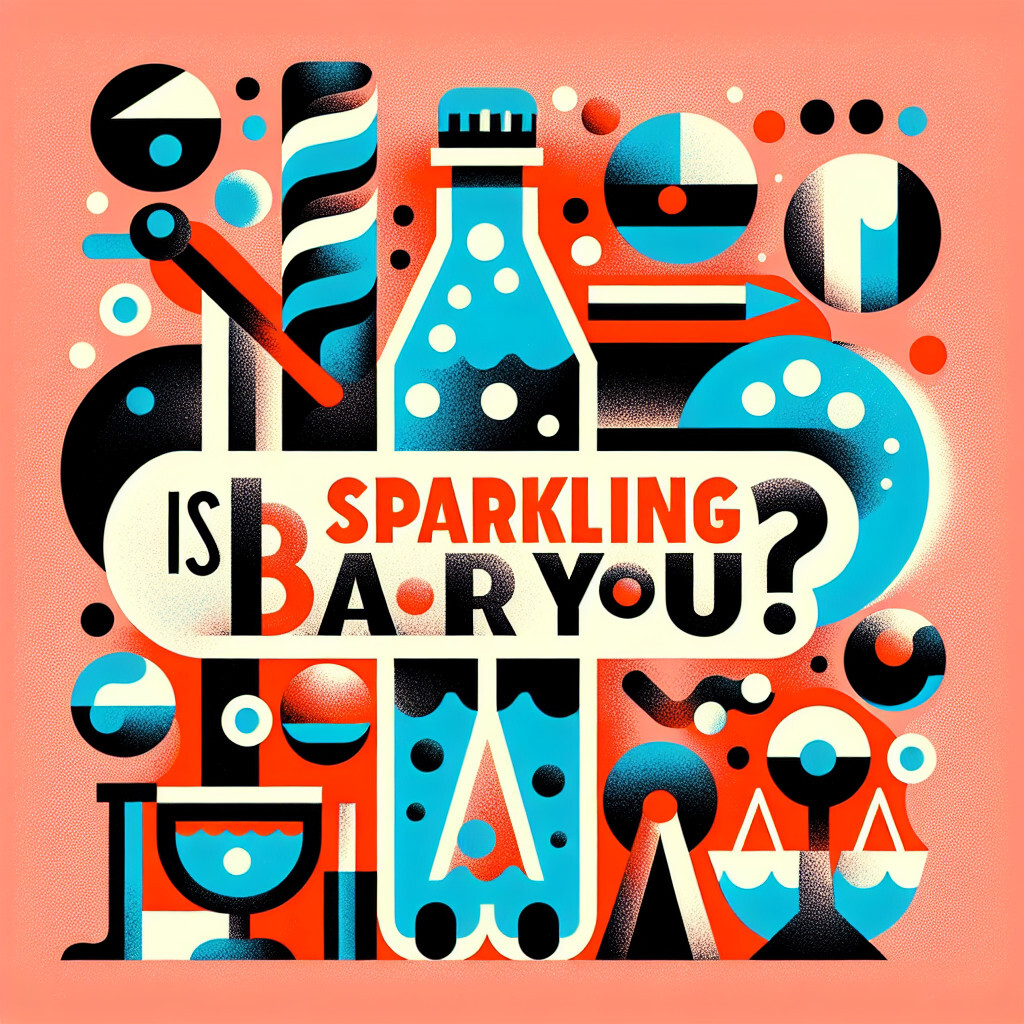-
Table of Contents
“Sparkling Water: A Fizzy Delight or a Health Concern? NHS Unveils the Truth.”
Introduction

Sparkling water is generally considered safe for consumption according to the National Health Service (NHS) in the UK. However, it’s important to note that while it’s a healthier alternative to sugary drinks, it may still have some potential downsides. Some concerns include its effects on tooth enamel due to its acidity, and potential digestive issues due to the carbonation. It’s also crucial to distinguish between naturally sparkling water and flavoured sparkling water, as the latter often contains added sugars and artificial flavours.
Understanding the Health Implications of Sparkling Water: NHS Insights
Sparkling water, a popular beverage choice for many, is often seen as a healthier alternative to sugary drinks and sodas. However, there have been concerns raised about its potential health implications. The National Health Service (NHS) in the UK has provided insights into this matter, helping to dispel myths and provide clarity on the subject.
Firstly, it is important to understand what sparkling water is. It is essentially water into which carbon dioxide has been dissolved under pressure, resulting in a fizzy drink. It can be natural, as in mineral water from springs, or man-made. Some varieties also contain added flavours or minerals. The fizziness and unique taste make it a popular choice for those seeking a refreshing, calorie-free beverage.
One of the main concerns about sparkling water is its potential effect on dental health. The carbonation process results in the formation of carbonic acid, which could theoretically harm the teeth. However, the NHS has clarified that the levels of acidity in sparkling water are relatively low and not likely to cause significant harm to the teeth, especially when compared to the high sugar and acid content of many soft drinks. Regular consumption of sparkling water is not associated with a significant risk of dental erosion, provided it is plain and not flavoured with citric or other acids.
Another concern is the potential impact of sparkling water on bone health. Some believe that the carbonation could leach calcium from the bones, leading to osteoporosis. However, the NHS has stated that there is no scientific evidence to support this claim. In fact, some studies have shown that the calcium content in mineral-based sparkling water could potentially benefit bone health.
The effect of sparkling water on digestion is another area of interest. Some people find that it aids digestion and helps with feelings of fullness. The NHS has indicated that while the carbonation can cause a feeling of fullness, it does not have a significant impact on digestion. However, it can cause gas and bloating in some people, especially those with irritable bowel syndrome or similar conditions.
Lastly, there is the question of whether sparkling water can lead to weight gain. The NHS has clarified that plain sparkling water, without added sugars or sweeteners, does not contain calories and therefore does not contribute to weight gain. However, flavoured varieties or those with added sugars can indeed contribute to increased calorie intake.
In conclusion, according to the NHS, sparkling water is not inherently bad for you. It can be a good alternative to sugary drinks, contributing to hydration without adding unnecessary calories. However, it is important to choose varieties without added sugars or acids, and to be aware that it can cause gas and bloating in some individuals. As with all things, moderation is key. It is also important to remember that while sparkling water can contribute to your daily fluid intake, it should not replace plain still water entirely.
NHS Guidelines: Is Sparkling Water Bad for Your Health?
The National Health Service (NHS) in the United Kingdom is a trusted source of health information, providing guidelines and advice on a wide range of topics. One question that often arises is whether sparkling water is bad for your health. According to the NHS, the answer is generally no, but there are some considerations to keep in mind.
Sparkling water, also known as carbonated water, is simply water into which carbon dioxide gas has been dissolved under pressure. This process gives the water its characteristic fizz and tangy taste. Many people enjoy sparkling water as a refreshing alternative to still water, particularly those who are trying to reduce their consumption of sugary drinks or alcohol.
The NHS states that drinking sparkling water is not harmful to health in most cases. It is a calorie-free and sugar-free beverage, making it a healthier choice than many other drinks. Moreover, it contributes to your daily hydration needs just as effectively as still water. However, it’s important to note that not all sparkling waters are created equal. Some brands may add sugar, artificial sweeteners, or other additives to enhance the flavour, which could potentially have negative health effects if consumed in large quantities. Therefore, it’s always a good idea to check the label before purchasing.
One concern that is often raised about sparkling water is its potential impact on dental health. The carbonation process makes sparkling water slightly more acidic than still water, which has led to fears that it could erode tooth enamel. However, the NHS reassures that the level of acidity in sparkling water is much lower than in sugary drinks or fruit juices, both of which are known to contribute to tooth decay. While it’s true that drinking large amounts of any acidic beverage could potentially harm your teeth over time, the risk from sparkling water is considered to be low.
Another common question is whether the carbonation in sparkling water could lead to bone loss. This concern stems from studies showing a link between cola consumption and lower bone density. However, the NHS clarifies that the culprit in these studies is not the carbonation itself, but the high levels of phosphoric acid found in colas. Sparkling water does not contain this ingredient and therefore poses no risk to bone health.
In terms of digestive health, some people find that sparkling water can cause bloating or heartburn. This is because the carbon dioxide gas can build up in your stomach, leading to discomfort for some individuals. If you experience these symptoms, the NHS advises that you may want to stick to still water instead.
In conclusion, the NHS guidelines suggest that sparkling water is not bad for your health, provided it is consumed in moderation and is free from added sugars and other unhealthy additives. It can be a good choice for those looking to stay hydrated while also enjoying a bit of fizz. However, as with any food or drink, it’s important to listen to your body and make choices that support your individual health needs.
Debunking Myths: NHS on the Health Risks of Sparkling Water
Sparkling water, a popular beverage choice for many, has recently been the subject of much debate and scrutiny. There are numerous myths and misconceptions surrounding its impact on health, with some suggesting that it may be harmful. However, the National Health Service (NHS) of the United Kingdom has provided valuable insights to debunk these myths, asserting that sparkling water is not detrimental to health when consumed in moderation.
One of the most common misconceptions about sparkling water is that it can lead to tooth decay. This belief stems from the fact that the carbonation process involves the addition of carbon dioxide, which then forms carbonic acid, giving the water its characteristic fizz. While it is true that acids can erode tooth enamel, the NHS clarifies that the level of acidity in sparkling water is relatively low. It is significantly less acidic than other beverages such as soft drinks or fruit juices. Therefore, the risk of tooth decay from sparkling water is minimal, especially when compared to these other more acidic beverages.
Another myth that has gained traction is the idea that sparkling water can weaken bone health. This misconception may have originated from studies showing that cola drinks, which are carbonated, can contribute to lower bone mineral density. However, the NHS points out that these studies often fail to differentiate between sparkling water and other carbonated drinks like cola, which contain caffeine and phosphorus that can negatively impact bone health. Sparkling water, on the other hand, does not contain these harmful ingredients and thus, does not pose the same risk.
The belief that sparkling water can lead to weight gain is another myth that needs debunking. Some people believe that the carbonation in sparkling water can cause weight gain or hinder weight loss efforts. However, the NHS asserts that sparkling water is calorie-free and sugar-free, making it a healthier alternative to sugary drinks or alcohol. It can also make you feel fuller, potentially helping to control appetite and support weight loss efforts.
Lastly, there is a misconception that sparkling water can cause digestive issues. While some people may experience bloating or gas due to the carbonation, the NHS states that there is no scientific evidence to suggest that sparkling water can cause serious digestive problems. In fact, some studies suggest that it may actually aid digestion by improving swallowing ability and reducing constipation.
In conclusion, the NHS has effectively debunked several myths surrounding the health risks of sparkling water. It is not harmful to teeth, does not weaken bones, does not cause weight gain, and does not lead to serious digestive problems. Like all things, it should be consumed in moderation. It is also important to choose sparkling water that does not contain added sugars or artificial sweeteners. So, the next time you reach for a refreshing bottle of sparkling water, you can do so without worrying about these unfounded health risks.
The NHS Perspective: Unveiling the Truth about Sparkling Water and Health
The National Health Service (NHS) of the United Kingdom, a trusted authority on health matters, has weighed in on the ongoing debate about the health implications of sparkling water. This article aims to provide an in-depth analysis of the NHS perspective on whether sparkling water is bad for your health.
Sparkling water, also known as carbonated water, is a popular beverage choice for many, particularly those seeking a healthier alternative to sugary soft drinks. It is simply water into which carbon dioxide gas has been dissolved under pressure, resulting in a fizzy drink that can be enjoyed on its own or used as a mixer in cocktails. However, there have been concerns raised about the potential health risks associated with regular consumption of sparkling water.
The NHS has addressed these concerns, providing a comprehensive and evidence-based perspective. According to the NHS, sparkling water is not harmful to health. It is a calorie-free and sugar-free beverage, making it a healthier alternative to sugary drinks. The NHS encourages the consumption of water, whether still or sparkling, as part of a healthy diet and lifestyle.
However, it is important to note that not all sparkling waters are created equal. Some brands may add sugar, artificial sweeteners, or other additives to their sparkling water, which could potentially have negative health effects. The NHS advises consumers to check the labels of sparkling water products to ensure they are not inadvertently consuming added sugars or other unwanted ingredients.
One of the main concerns raised about sparkling water is its potential impact on dental health. The carbonation process results in the formation of carbonic acid, which could potentially erode tooth enamel. However, the NHS has clarified that the level of acidity in sparkling water is much lower than in other beverages like soft drinks and fruit juices. Therefore, while it is slightly more acidic than still water, sparkling water is not likely to cause significant damage to teeth if consumed in moderation.
Another concern is the potential impact of sparkling water on bone health. Some believe that the carbonation in sparkling water could lead to calcium loss in bones. However, the NHS has debunked this myth, stating that there is no scientific evidence to support this claim. In fact, some studies have shown that the calcium content in sparkling water can actually contribute to daily calcium intake.
In terms of digestive health, some people may experience bloating or gas after drinking sparkling water due to the carbon dioxide gas. However, this is generally a mild and temporary discomfort and does not pose a significant health risk.
In conclusion, the NHS asserts that sparkling water is not bad for your health, provided it is consumed in moderation and is free from added sugars and other additives. It can be a refreshing and healthy alternative to sugary drinks, contributing to hydration and potentially even calcium intake. However, as with any food or drink, it is important to consume sparkling water as part of a balanced diet and not as a substitute for other essential nutrients.
Q&A
Question 1: Does the NHS recommend drinking sparkling water?
Answer 1: The NHS does not specifically recommend or discourage drinking sparkling water. It emphasizes staying hydrated and water is a good choice.
Question 2: Can sparkling water harm your teeth according to the NHS?
Answer 2: According to the NHS, while sparkling water is slightly more acidic than still water, it’s not as acidic as flavoured fizzy drinks and is not expected to harm teeth.
Question 3: Does the NHS suggest any health risks associated with drinking sparkling water?
Answer 3: The NHS does not suggest any specific health risks associated with drinking sparkling water. However, it advises moderation and a balanced diet.
Question 4: What does the NHS say about the impact of sparkling water on bone health?
Answer 4: The NHS does not provide any specific information about the impact of sparkling water on bone health. It generally advises a balanced diet and regular exercise for maintaining healthy bones.
Conclusion
The NHS does not state that sparkling water is bad for you. It is considered a healthy alternative to sugary drinks. However, it may cause bloating and gas due to the carbonation and could potentially harm tooth enamel if consumed in large amounts.





